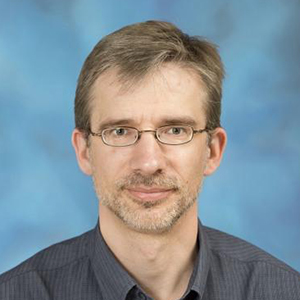
25 Feb An Interview with Adrian Lee, University of Pittsburgh

Dr. Adrian Lee has had a key role in shaping precision medicine research at the University of Pittsburgh and personalized care in the large UPMC integrated finance and delivery healthcare system. An example of the early progress in precision medicine is research and implementation of pharmacogenomics, and development of computational systems and architecture for sharing of clinical and genomic data. Read his full bio.
Interview with Adrian Lee, University of Pittsburgh
Q: What drives precision medicine at the University of Pittsburg and why is it important to meet now in Pittsburgh to focus on precision medicine advancements?
A: Pittsburgh hosts the largest academic payer-provider healthcare system (UPMC and University of Pittsburgh) in the United States. Combined with Carnegie Mellon University, the region is a hotbed of innovation and entrepreneurship in precision medicine, with advanced in biomedical research and computing being implemented into patient care. Pittsburgh is pioneering studies I population genetics, being home to AllofUs Pennsylvania where we are engaging up to 150K individuals, and having one of the nation’s largest studies implementing pre-emptive pharmacogenomics in healthy individuals. In collaboration between UPMC, Pitt and CMU the Pittsburgh Health Data Alliance is driving studies in how to use artificial intelligence in biomedical discovery and clinical decision support.
Q: What are you expecting PMWC attendees will walk away with when attending the PMWC 2020 Pittsburg conference?
A: Attendees will learn about state of the art precision medicine approaches in a wide array of medical situations including neonatal care, pharmacogenomics, molecular testing and many more. There will be lectures giving a background to these areas and panel discussions on future opportunities and challenges. Attendees will also hear from a number of companies who are driving innovation in precision medicine and the role the Pittsburgh ecosystem has in promoting this research and entrepeneurship.
Q: What are some of the PMWC 2021 Pittsburg talks everyone should attend and why?
A: Dr Kingsome will give a keynote lecture on the role of whole genome sequencing (WGS) in neonatal care. His work is transforming the current clinical approach by showing that upfront WGS can identify genetic causes of disease in a large fraction of patients and rapidly improve care and outcomes. This work is a prime example of how precision medicine can be applied to personalized care.
Q: What are some of the calls to actions that we as a community should focus on and why?
A: While biomedical research and innovation occurs at pace, movement of these advances into clinical care remains slow. Large healthcare systems are struggling to adapt to precision medicine. Our recent analysis (enclosed) showed that the majority of healthcare systems have either not deployed precision medicine or are at low maturity. While there is expectation that it will be utilized, particularly in areas such as oncology and pharmacogenomics, there remain many barriers. A major barrier is the lack of education in this area – particularly in font line physicians.
Q: What are some of the examples that demonstrates that the Pittsburg medical community is successfully advancing medicine and precision medicine in particular?
A: UPMC, Pitt and CMU have committed >$400M to several aspects of precision medicine including precision biobanking, a new genome center, advances in immunotherapy and transplantation, and computing and artificial intelligence. Pitt is #5 in NIH funding (>$450M/yr) and a large fraction of this is in precision medicine research, such as the NIH AllofUs funding. Pittsburgh investigators have made key recent findings in many areas such as the use of artificial intelligence to mine the electronic health record and identify subtypes of sepsis.
Q: Is there anything else you would like to share with the PMWC community?
A: Pittsburgh is a vibrant and growing city, with recent major advances in many areas such as autonomous vehicles. Visitors to the city will see how the once renowned ‘Steel city’ has rejuvenated itself based upon education and medicine, and how this is now driving advances in precision medicine.






